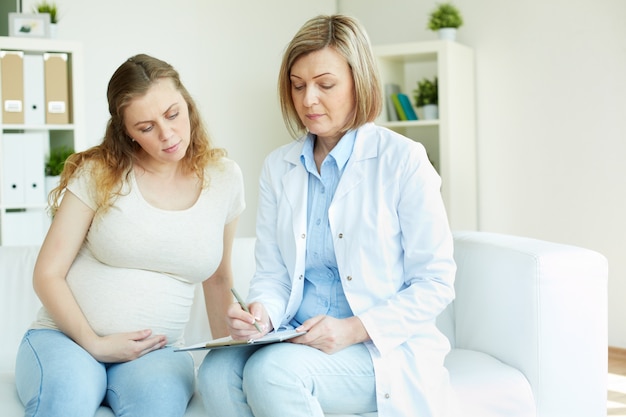
When a sperm successfully fertilizes an egg released from the ovary, this typically marks the beginning of pregnancy. Normally, the fertilized egg travels to the uterus and attaches to its lining. However, in the case of an ectopic pregnancy, the fertilized egg implants itself in the fallopian tube or, in rare cases, another part of the abdomen. This is a serious medical condition that requires immediate attention to prevent complications.
Ectopic pregnancy isn’t very common, occurring in about 1 out of every 50 pregnancies. It is considered abnormal because the fallopian tube or other non-uterine sites cannot support the growth of a fertilized egg. Without treatment, this condition can be life-threatening and may also lead to complications with future pregnancies, reproductive health issues, and other medical problems. Early intervention helps minimize these risks.
### Causes of Ectopic Pregnancy
Several factors have been identified as contributing to ectopic pregnancies. Here are some of the most common causes:
**1. Use of Intrauterine Devices (IUDs)**
Women of childbearing age who have had an IUD inserted for medical or contraceptive purposes may have an increased risk of ectopic pregnancy. Instead of implanting in the uterus, the fertilized egg can attach to the fallopian tube—a site unsuitable for pregnancy.
**2. Fertility Treatments**
In cases where fertility treatments are involved, such as embryo transfers during in-vitro fertilization (IVF), the embryo may inadvertently implant in the fallopian tube, leading to ectopic pregnancy.
**3. Previous Ectopic Pregnancy**
A prior ectopic pregnancy significantly increases the likelihood of recurrence. Women with a history of this condition should be vigilant while trying for future pregnancies.
**4. Past Fallopian Tube Surgery**
Surgical procedures involving the fallopian tubes, like sterilization or tube repair surgeries, can increase the risk of an ectopic pregnancy.
**5. Abdominal Surgery History**
Surgeries in the abdominal region—such as C-sections, appendectomies, or other major operations—may heighten the chances of ectopic pregnancy later on.
**6. Pelvic Inflammatory Disease (PID)**
Sexually transmitted infections, like Chlamydia, that cause inflammation in the pelvic region may contribute to an ectopic pregnancy in the future.
**7. Advanced Maternal Age**
Pregnancy later in life carries a higher risk of complications, including ectopic pregnancies.
**8. Hormonal Birth Control Pills (Mini-Pills)**
Certain contraceptive pills can impact the movement of fertilized eggs, increasing the likelihood of implantation in the fallopian tube instead of the uterus.
**9. Emergency Contraceptive Pills**
While designed to prevent pregnancy, emergency contraceptives can sometimes have the opposite effect. This alteration may result in the fertilized egg attaching to the fallopian tube.
**10. Smoking**
Smoking has been linked to an increase in the production of a protein called PROKR1 in the fallopian tube. This protein, essential for embryo development in the uterus, can encourage abnormal implantation in the wrong location.
—
### Symptoms of Ectopic Pregnancy
Ectopic pregnancy often exhibits specific symptoms. If you experience any of these, you should promptly seek medical attention:
**1. Severe Abdominal Pain**:
Pain is often intense and localized in the abdominal region. It may become excruciating and is typically more severe than normal aches and cramps.
**2. Vaginal Bleeding**:
Unusual vaginal bleeding, particularly if it’s not associated with your period or is accompanied by abdominal cramps, can be a warning sign.
**3. Random Body Pain**:
Pain can radiate to areas like the shoulder tip, neck, or rectum.
**4. Diarrhea and Vomiting**:
Frequent diarrhea and vomiting combined with abdominal cramps can indicate an ectopic pregnancy. These symptoms also risk dehydration, which can quickly worsen the condition.
**5. Dizziness or Weakness**:
The combination of abdominal pain, bleeding, and vomiting can result in dizziness, fainting, or a general sense of weakness.
**6. Nausea**:
Nausea and frequent vomiting are common symptoms that persist even after conventional treatments.
—
### Diagnosing Ectopic Pregnancy
Since ectopic pregnancy symptoms are similar to those of other conditions, tests are essential for accurate diagnosis and treatment. Common methods include:
**1. Urine Tests**:
A pregnancy test confirms whether you are pregnant, but additional testing will determine where the pregnancy is located.
**2. Pelvic Examination**:
A physical exam helps doctors assess the uterus, ovaries, fallopian tubes, and overall pelvic health.
**3. Ultrasound**:
Through imaging, an ultrasound pinpoints the location of the embryo, confirming whether it has implanted in the uterus or elsewhere.
**4. Blood Tests**:
While a home or urine pregnancy test can indicate pregnancy, a blood test is far more precise in measuring hormone levels to confirm abnormal pregnancies.
—
### Treatment Options for Ectopic Pregnancy
Ectopic pregnancy occurs when the embryo implants outside the uterus. Since an embryo cannot develop properly in these locations, it must be addressed immediately to avoid harm.
**1. Medication**:
For early-stage ectopic pregnancies with no damage to the fallopian tube, medication is often the first line of treatment. Methotrexate is commonly used to halt the growth of the abnormally implanted embryo. Regular monitoring of hormone levels is crucial during this time to ensure the body properly absorbs the tissue.
Side effects of methotrexate may include abdominal discomfort, nausea, and diarrhea. If one injection doesn’t succeed in reducing hormone levels, additional doses might be needed.
**2. Surgery**:
If the ectopic pregnancy is advanced or if complications such as fallopian tube damage occur, surgery becomes necessary. Laparoscopic surgery is a minimally invasive procedure often used to remove the embryo and repair the fallopian tube. In severe cases, where the tube is heavily damaged, it may need to be removed entirely.
After surgery, doctors monitor hormone levels to confirm the pregnancy tissue is completely removed. In some cases, medication like methotrexate is also administered after surgery to ensure no remaining tissue is left behind.
—
Ectopic pregnancy is a medical emergency that requires swift action. By understanding its causes, symptoms, diagnosis, and treatment options, women can take the necessary steps to address this condition and protect their health. Early treatment not only alleviates complications but also ensures there’s minimal risk to future pregnancies.